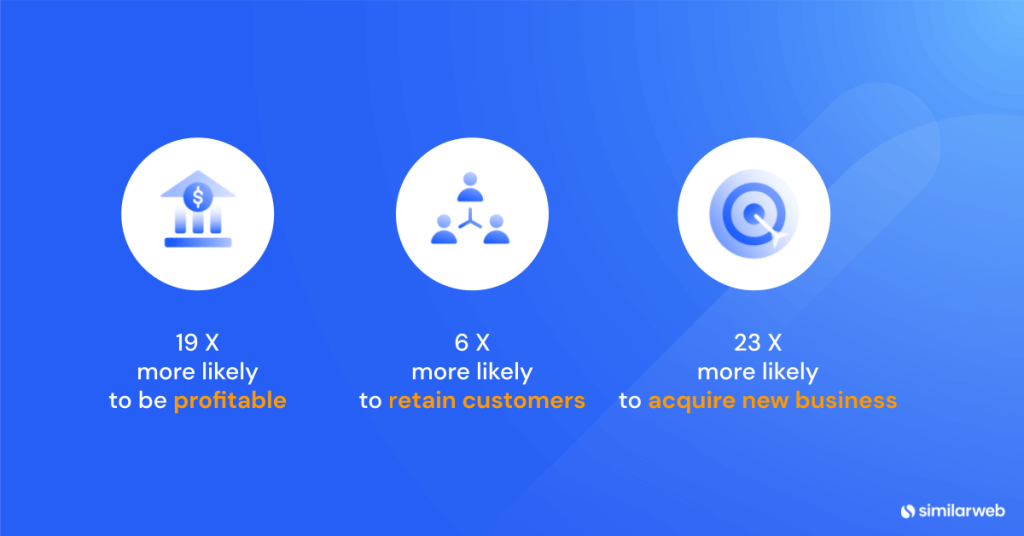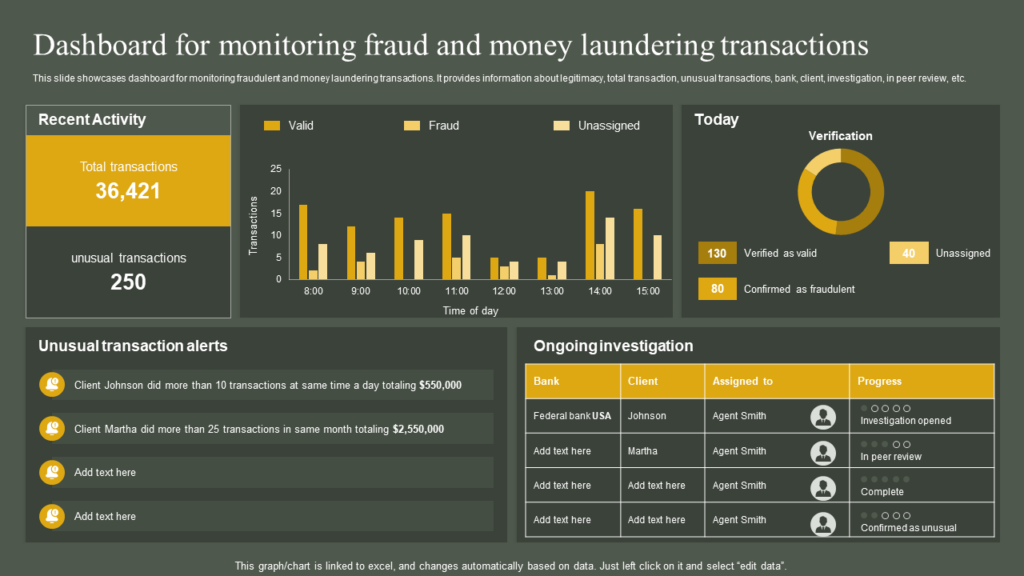Why Data Collection Is Important?
In today’s data-driven landscape, understanding why data collection is important is key to achieving business growth and sustainability. The insights derived from data allow organizations to make more informed decisions, gain a competitive edge, and anticipate market shifts with greater precision. From customer insights to operational improvements and innovation, effective data collection forms the foundation of success for businesses across industries. A software development company can help streamline data collection processes, providing the tools and expertise needed to harness data effectively and drive growth.
This article dives deep into the critical roles that data collection plays, illustrating its value through real-world applications and industry best practices.
1. Strengthening Decision-Making with Data-Driven Insights
In the past, businesses relied heavily on intuition or limited information to make decisions. Today, data provides a clearer, more objective lens through which leaders can evaluate options and set strategic directions. By collecting, analyzing, and interpreting data, organizations can uncover patterns and insights that guide them toward choices that align with their goals.
According to a McKinsey & Company report, companies that make data-driven decisions are 23 times more likely to acquire customers, 6 times more likely to retain customers, and 19 times more likely to be profitable. These companies are able to leverage data insights to make faster, more informed decisions that drive business success. Partnering with a software development company can further enhance these capabilities, providing the tools and technologies necessary to effectively collect and analyze data for more informed decision-making.

Image source: similarweb
Benefits of Data-Driven Decisions
Data collection reduces guesswork and enhances accuracy in decision-making. When companies rely on data, they’re better positioned to anticipate outcomes and react swiftly to challenges. By identifying customer needs, forecasting trends, and tracking internal performance, businesses gain a comprehensive understanding of their environment, leading to more impactful, profitable decisions. This is a key reason why data collection is important in today’s business environment.
Amazon’s use of predictive analytics is a prime example of why data collection is important. By collecting vast amounts of data on purchasing history, browsing behaviors, and individual preferences, Amazon accurately predicts customer needs, personalizing the shopping experience and increasing customer satisfaction. This reliance on data has enabled Amazon to scale its offerings and cement its position as an e-commerce leader.
2. Enhancing Customer Understanding and Personalization
One of the most significant advantages of data collection is the ability to understand customers at a granular level. By analyzing data related to purchasing habits, online behavior, and demographic details, businesses can anticipate customer preferences and create personalized experiences that strengthen customer loyalty and retention.
The Power of Personalization
When companies know what drives customer decisions, they can offer products and services that better meet their needs. This personalized approach not only enhances satisfaction but also leads to increased sales and customer lifetime value. This is another reason why data collection is important—it allows businesses to build stronger relationships with their customers.
Netflix uses algorithms based on extensive data to recommend content to its users. By collecting data on viewing history, preferences, and even how long users watch each show, Netflix creates highly personalized content suggestions. This not only keeps users engaged but also enhances satisfaction and reduces churn, driving the company’s continued growth in a competitive streaming market.
Get in touch with Savvycom for a free consultation. We’ll help you decide on next steps, explain how the development process is organized, and provide you with a free project estimate.
3. Streamlining Operations and Boosting Efficiency
Data collection also plays a fundamental role in improving internal operations. By gathering data on processes, inventory, and resource use, companies can identify inefficiencies and streamline workflows. This leads to cost savings, improved productivity, and greater operational agility, further emphasizing why data collection is important.
Operational Benefits of Data Collection
Operational data enables businesses to detect bottlenecks, optimize resource allocation, and improve quality control. For instance, manufacturing companies can monitor production metrics to ensure equipment operates at optimal capacity, reducing downtime and minimizing waste. This use of data is vital for maintaining operational efficiency, which drives better results in the long run.
Walmart’s data-driven approach to supply chain management is a noteworthy example. By collecting and analyzing real-time data on stock levels, demand forecasts, and supplier performance, Walmart ensures that inventory levels are optimized and that stores are stocked efficiently. This use of data has allowed Walmart to reduce excess inventory costs and improve the customer experience by consistently meeting demand.
4. Fueling Innovation and Competitive Differentiation
In highly competitive markets, innovation is essential. Data collection helps companies identify trends, customer pain points, and potential product development areas. By examining this information, businesses can innovate proactively, creating solutions that address evolving customer needs and positioning themselves as industry leaders.
Data as a Driver of Innovation
Innovation driven by data collection can manifest in various forms, from new product features to enhanced service offerings. By regularly monitoring customer feedback, companies can prioritize developments that align with market demands, keeping them ahead of competitors. This is a crucial reason why data collection is important—it enables businesses to innovate based on real-time insights.
Tesla collects extensive data from its vehicles to improve and innovate its autonomous driving technology. Data on driving conditions, user interactions, and system performance is used to refine Tesla’s AI models, enabling the company to offer increasingly advanced self-driving capabilities. Tesla’s commitment to data-driven innovation has allowed it to revolutionize the automotive industry and distinguish itself in a crowded market.
5. Empowering Targeted and Efficient Marketing
Marketing campaigns that resonate with target audiences are more successful, and data collection is essential to achieve this resonance. By collecting data on consumer demographics, behavior, and engagement, companies can create highly targeted marketing strategies that yield better returns on investment (ROI) and foster brand loyalty.
Benefits of Data-Driven Marketing
Data allows for greater precision in advertising, ensuring that messages reach the right audience at the right time. Businesses can test different marketing approaches, analyze results, and optimize strategies based on real-world performance, maximizing engagement and minimizing costs. This same data also powers tools like abm software, which rely on accurate customer and account insights to target high value prospects more effectively.” This is another prime example of why data collection is important—it enables more effective and efficient marketing efforts.
Many e-commerce platforms use data to create targeted ads tailored to individual preferences. For example, if a customer browses a certain product category, they might later see ads for similar items across various online platforms. This targeted approach not only increases conversion rates but also enhances the overall customer experience, as consumers see products that align with their interests.
6. Monitoring Market Trends and Gaining a Competitive Edge
Data collection enables businesses to monitor and predict market trends, providing insights that can guide strategic planning. By analyzing trends over time, companies can anticipate shifts in consumer preferences, adapt product lines, and stay ahead of the competition. This highlights another reason why data collection is important—it helps businesses stay relevant in rapidly changing markets.
The Importance of Trend Analysis
Trend analysis allows companies to identify growth opportunities and avoid risks. With a pulse on emerging trends, businesses can develop new products, enter new markets, and position themselves as leaders.
Fashion companies use data on social media, online searches, and sales patterns to predict upcoming trends. By closely monitoring these trends, fashion brands can ensure their collections align with current consumer interests, which is critical in a fast-paced, trend-driven market.
7. Ensuring Regulatory Compliance and Data Security
With the rise of data protection regulations such as GDPR and CCPA, maintaining data security and compliance has become more critical than ever. Effective data collection practices include safeguarding customer information and ensuring that data is managed responsibly, reducing the risk of regulatory penalties and building customer trust. This is yet another compelling reason why data collection is important—it ensures businesses remain compliant with evolving legal requirements.
The Role of Data Collection in Security and Compliance
Data collection allows companies to monitor activities, detect anomalies, and identify potential security threats. By implementing compliance-focused data practices, companies can safeguard sensitive information, maintain customer trust, and avoid legal complications.
Banks use data to detect fraud by analyzing transaction patterns and identifying unusual activity. If a transaction deviates from a customer’s typical behavior, banks can flag it for further investigation. This approach not only protects the customer but also helps the institution avoid financial losses and reputational damage.

Image source: slide team
Have a Project Idea in Mind?
Get in touch with Savvycom’s experts for a free consultation. We’ll help you decide on next steps, explain how the development process is organized, and provide you with a free project estimate.
8. Enhancing Customer Satisfaction and Engagement
Customer satisfaction is a crucial determinant of business success, and data collection plays a key role in measuring and improving it. By gathering customer feedback, preferences, and satisfaction scores, companies can pinpoint areas for improvement and implement strategies that foster stronger relationships and brand loyalty.
Customer Experience Benefits
Data collection helps companies address pain points and create experiences that align with customer expectations. Real-time feedback systems, for example, allow businesses to respond promptly to issues, enhancing customer satisfaction and strengthening brand reputation.
Many hotels and resorts use real-time feedback systems to monitor guest satisfaction. By collecting feedback during the stay, these businesses can address issues immediately, leading to an enhanced guest experience and higher customer satisfaction.
9. Facilitating Employee Performance and Organizational Growth
Data collection is also valuable for internal performance management. By tracking employee productivity, engagement, and satisfaction, businesses can create a more motivated, effective workforce. Insights from this data help companies make informed HR decisions, optimize workflows, and cultivate a positive work culture. This shows another layer of why data collection is important—it enables companies to foster internal growth and high performance.
Google employs data-driven strategies to measure employee satisfaction and identify ways to improve workplace dynamics. By analyzing engagement data, Google has developed initiatives that enhance employee satisfaction, which, in turn, boosts productivity and innovation.
The Future of Data Collection: Emerging Technologies and Opportunities
As technology advances, data collection capabilities are expanding. Innovations such as Artificial Intelligence (AI), Machine Learning (ML), and the Internet of Things (IoT) make data collection faster, more accurate, and accessible. Businesses leveraging these technologies can gain real-time insights, identify emerging trends, and make decisions that keep them ahead of the competition. This growing technological landscape is a major reason why data collection is important for future-proofing businesses.

Conclusion: Data Collection as the Foundation of Success
Data collection serves as the backbone of effective decision-making, enabling businesses to stay competitive in a rapidly evolving landscape. Implementing robust data quality assurance practices ensures that the insights derived are reliable and actionable. By understanding the key stages of data processing, organizations can streamline workflows and improve overall efficiency. Leveraging modern data extraction software enhances the ability to gather valuable information while mitigating big data risks through advanced secure data encryption techniques. Finally, a well-designed data analytics platform empowers businesses to translate data into strategic initiatives that drive growth and innovation.
Savvycom offers tailored data services and solutions to help businesses harness the power of data effectively. From ensuring the highest standards of data collection and analysis to designing platforms that simplify complex workflows, our services provide unparalleled value. We focus on optimizing every stage of the data lifecycle, enabling secure and insightful outcomes. Whether you aim to extract critical insights or safeguard information, our innovative solutions will propel your business into a data-driven future.
Tech Consulting, End-to-End Product Development, Cloud & DevOps Service! Since 2009, Savvycom has been harnessing digital technologies for the benefit of businesses, mid and large enterprises, and startups across the variety of industries. We can help you to build high-quality software solutions and products as well as deliver a wide range of related professional services.
Savvycom is right where you need. Contact us now for further consultation:
- Phone: +84 24 3202 9222
- Hotline: +1 408 663 8600 (US); +612 8006 1349 (AUS); +84 32 675 2886 (VN)
- Email: [email protected]


